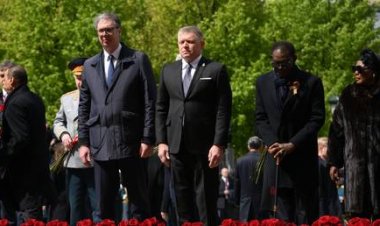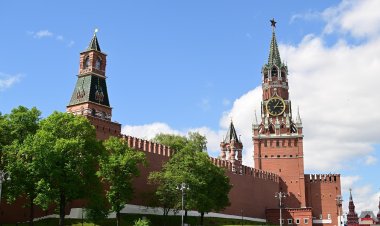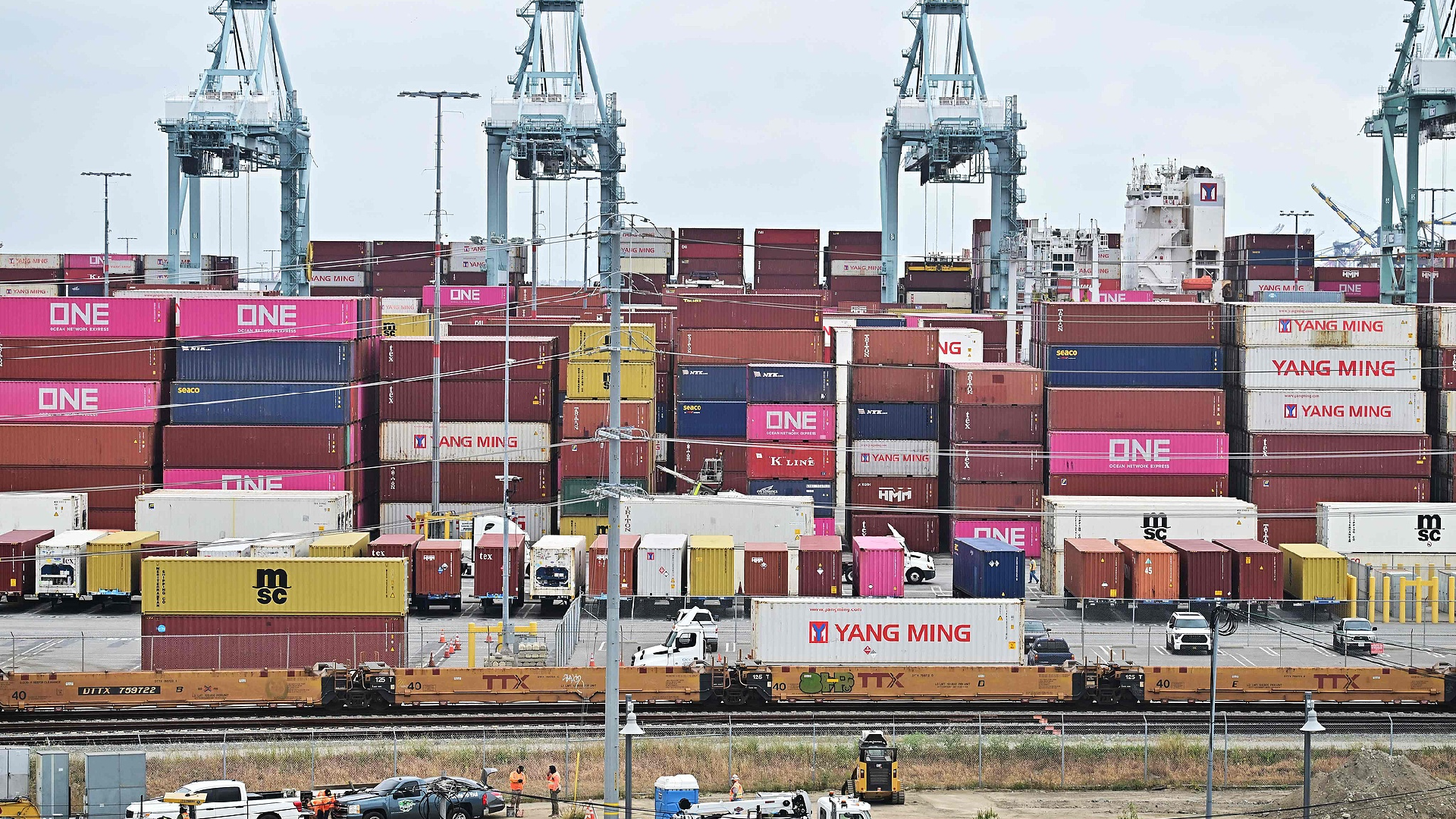Switzerland Targets Eurovision with Its Unique Democratic Approach
The well-known singing competition is bringing attention to a notable feature of Switzerland's political system.

However, this vibrant competition, which captivates millions and has produced iconic stars like Celine Dion, who took the title for Switzerland in 1988, is now becoming intertwined with cultural politics. This development arises from Switzerland's unique direct democracy system, with millions of taxpayer francs at stake that will significantly affect the scale of next year’s contest.
Switzerland secured the hosting rights for Eurovision 2025 following the nonbinary singer Nemo’s groundbreaking victory in 2024 — the country’s first win since Dion's success nearly 30 years ago. Recently, organizers confirmed that Basel will be the host city for the upcoming contest.
Yet, a small conservative Christian party, the Federal Democratic Union of Switzerland (EDU), has pledged to initiate a referendum against Basel’s decision to allocate 37.5 million Swiss francs for hosting the event. The party criticized Eurovision, labeling it “rife with antisemitism, blasphemy and Satanism.” They pointed to acts such as Ireland’s Bambie Thug, who describes herself as a witch and “ouija popstar,” and whose performance included a pentagram.
“For such a woke party, we Swiss are now supposed to pay a hefty bill?” the EDU questioned in a video shared on social media.
Such concerns about “wokeness” echo criticisms from U.S. conservatives regarding the 2024 Olympics in France. Donald Trump condemned the opening ceremonies, which featured drag performers, stating, “I’m very open-minded, but I thought what they did was a disgrace.” His running mate, JD Vance, inaccurately alleged that an Algerian boxer was a transgender woman, attempting to connect her to Vice President Kamala Harris: “This is where Kamala Harris’s ideas about gender lead: to a grown man pummeling a woman in a boxing match.”
In Switzerland, unlike in the U.S., direct democracy — the most advanced of its kind globally — permits citizens to take their cultural grievances directly to the ballot.
Citizens in this Alpine nation of 8.9 million can vote up to four times a year on various policy matters at different governmental levels. This framework enables citizens, political parties, and interest groups to propose new policies or challenge existing laws.
Consequently, a significant portion of the Eurovision 2025 funding could be subject to a direct voter decision, depending on the public sentiment come November.
As Switzerland commemorates 150 years of using the referendum as a political tool at the federal level, its effectiveness in shaping policies and sparking national discourse is evident — all stemming from a singing contest.
“Of course we take it seriously and it brings planning uncertainty,” said Edi Estermann, a spokesperson for the Swiss public broadcaster SRG SSR, which is organizing the Eurovision event. “In the worst case, if such a vote were to go against the city’s financial contribution, the [Eurovision Song Contest] would have to be greatly reduced.”
Yet, Estermann noted this is simply part of life in Switzerland: “We live in a direct democracy, so the instrument of the referendum is part of it.”
In recent years, Swiss voters have weighed in on issues ranging from regulations on cow horns to banning burqas. They have also voted multiple times on lifting coronavirus restrictions and vaccinations, as well as ambitious renewable energy goals.
Both conservative and progressive movements have gained ground through direct democracy: A notable 2009 initiative from the right-wing Swiss People’s Party banned minaret construction nationwide, while earlier this year, progressive activists succeeded in introducing a proposal for a 13th month of pension payments.
Many initiatives and referendums don’t pass — only about 10 percent of initiatives and 40 percent of referendums ultimately succeed — but the regular votes serve as a crucial outlet for political frustrations that many other nations lack. “Even if you don’t do it, you know you could theoretically,” noted Sean Mueller, a professor studying Swiss direct democracy at the University of Lausanne. “This alleviates a lot of the disaffection other people in other countries experience toward politics.”
On a local level, initiating a referendum has a relatively low threshold: Opponents of Eurovision funding only need to gather 2,000 valid signatures within a 42-day period for the referendum to proceed. This timeframe allows them to place the matter on the November ballot, with referendum leader Samuel Kullmann asserting that they could prevent the funding from being used altogether.
Kullmann emphasized that their objections to Eurovision funding extend beyond claims of it being too “woke.” They also express financial and security concerns, questioning why Basel would consider investing 37 million Swiss francs into Eurovision when the same government has allocated only 12.9 million francs for the upcoming women’s Euro soccer tournament.
He also highlighted protests in Malmö, Sweden, during this year’s Eurovision, which arose due to Israel’s participation, suggesting that hosting the contest may lead to security risks.
However, Kullmann acknowledged that certain elements, like the pentagram and witchcraft symbolism in Bambie Thug’s performance, are particularly offensive to the party's Christian members. “We just felt it’s an egregious double standard that everything Christian has absolutely no place at all, but then we look at the performance of Bambie Thug and it’s overtly occult to a very, very high degree,” he stated. “These double standards made us angry.”
While the EDU is a relatively small party, it has gained support from Switzerland's largest political group, the right-wing SVP, whose leaders share concerns regarding Eurovision funding. SVP leader Marcel Dettling remarked that funds would be better directed toward aiding those impacted by severe storms rather than “wasting” money on the “embarrassing rainbow event.” The party’s youth branch in the Basel region plans to back the referendum campaign.
Even if they successfully get the issue on the November ballot, it remains uncertain whether the relatively progressive populace of Basel would support the measure. Regardless, organizers contend that the campaign has already achieved part of its objective: igniting a nationwide debate on the value of Eurovision and the implications of hosting such a beloved contest.
The intention behind an initiative or referendum “is often also to bring an issue to political attention, to bring it onto the political agenda, even if maybe only a few people in parliament would approve it,” Kullmann explained. “But you are able to launch a nationwide discussion on an issue that maybe was previously ignored by politics.”
Alejandro Jose Martinez contributed to this report for TROIB News












